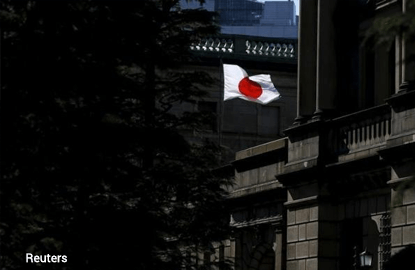
TOKYO (March 16): The Bank of Japan kept monetary policy steady on Thursday in the wake of the U.S. Federal Reserve's second interest rate hike in three months, underscoring the diverging policy paths of major global central banks.
Economists had expected no change in the BOJ's policy settings as rising global protectionist sentiment and an expected series of U.S. rate hikes overshadow budding signs of recovery in the trade-reliant Japanese economy.
Investors are now focusing on Governor Haruhiko Kuroda's post-meeting briefing at 0630 GMT for clues on how the Fed's move could affect the BOJ's decision on whether and when to pull back its massive stimulus programme.
"We think the BOJ will raise the 10-year government bond yield target between July and September," said Yuichiro Nagai, an economist at Barclays Securities.
"It's possible consumer inflation may hit 1% as early as August, and the BOJ might adjust the yield target around that time, as the economy recovers as a trend."
Kuroda, who will attend this week's Group of 20 finance leaders' meeting in Germany, may also shed light on how the BOJ will defend its ultra-loose policy from any U.S. criticism it is exploiting a weak yen to gain a competitive trade advantage.
As expected, the BOJ maintained on Thursday its short-term interest rate target of minus 0.1 and a pledge to guide the 10-year government bond yield at around zero percent via aggressive asset purchases.
It also kept intact a loose pledge to maintain the pace of its annual increase in Japanese government bond (JGBs) holdings, which is 80 trillion yen (US$706 billion).
The BOJ maintained its cautiously optimistic assessment that the economy continues to recover moderately as a trend.
Protectionism a risk
While a rebound in fuel costs is set to accelerate price growth in coming months, Kuroda is likely to stress that no immediate rate hike is on the horizon with inflation still nowhere near his ambitious 2% target.
"Very few people expect inflation to reach 2%. In addition, I see no change to inflation expectations," said Shuji Tonouchi, senior market economist at Mitsubishi UFJ Morgan Stanley Securities.
"In these circumstances, raising the 10-year yield target cannot be considered. Even if the BOJ wanted to move, I don't think it could."
But Kuroda may leave open the chance of raising the BOJ's yield target if the economic recovery gathers enough momentum to push prices steadily higher, analysts say.
Japan's long-stagnant economy has shown signs of life in recent months, with exports and factory output benefitting from a recovery in global demand.
Core consumer prices rose for the first time in over a year in January and many analysts expect inflation to accelerate toward 1% later this year, due largely to a rebound in energy costs and rising import prices from a weak yen.
That has led to a dramatic shift in market expectations, with a majority of analysts polled by Reuters predicting the BOJ's next move would be to start scaling back its ultra-easy policy.
The Fed made the widely-anticipated decision to hike rates on Wednesday in its effort to return policy to a more normal footing, but signalled no pick-up in the pace of rate hikes.
Some analysts say the BOJ may be forced to raise its yield target to avoid ramping up bond purchases if Japanese long-term interest rates track global bond yield rises, which are being driven by expectations of higher U.S. interest rates.
The BOJ hopes to dispel such speculation and stress it won't raise its yield target unless the economy strengthens enough to accelerate inflation stably toward 2%, say sources familiar with its thinking.
A rising global tide of protectionism is adding to concerns for Japanese policymakers, given the economy's heavy reliance on exports and free trade.
A draft communique of the G20 finance leaders' meeting appeared to accommodate U.S. President Donald Trump's protectionist views on trade by watering down a commitment to "reject all forms of protectionism."
Kuroda may offer clues on how Japan will defend its policies and how strongly it would push back against attempts to water down the G20 commitment on free trade, analysts say.
(US$1 = 113.3400 yen)